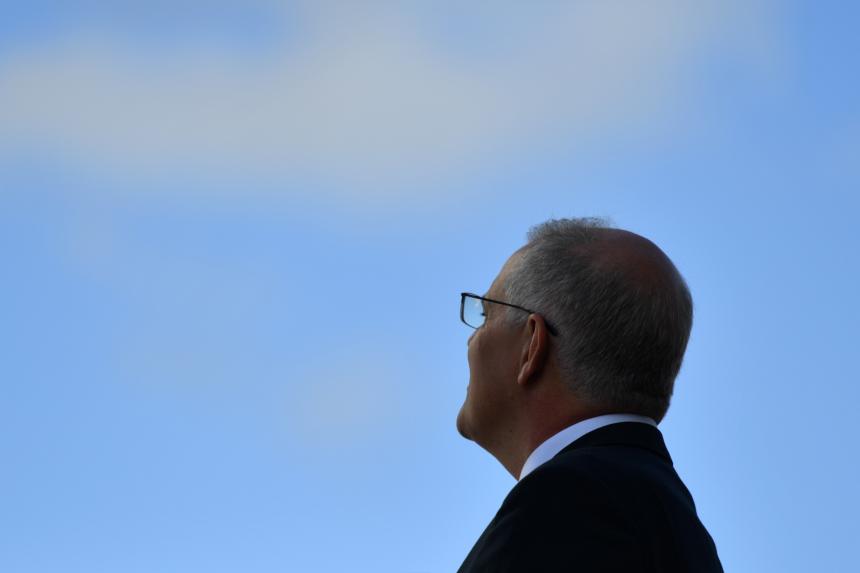
SYDNEY – In his first press conference of the Australian election campaign, Labor leader Anthony Albanese – the current favourite – made a bold promise that he will almost certainly be unable to fulfil.
“We will end the climate wars,” he declared. “Enough.”
Mr Albanese, who currently leads Prime Minister Scott Morrison in the opinion polls, was referring to Australia’s dismal failure in recent years to agree on a clear, effective plan for tackling climate change.
Instead, for the past 15 years, a series of prime ministers and opposition leaders have been toppled by their parties over their plans to tackle climate change, which has led to a reluctance by Australian leaders to embrace reform.
As a result, Australia, despite being a major exporter of coal and one of the world’s largest emitters of carbon per capita, has no comprehensive climate policy.
Experts and the public all agree that this inertia must end, especially after the country has suffered recent natural disasters such as bushfires and floods that have raised concerns about its vulnerability to global warming.
A survey of 50 economists published this week by The Conversation website and the Economic Society of Australia found that climate change and the environment was rated by far the most important issue at the coming election. Asked to name their top three issues, 74 per cent of economists listed climate change, compared with 38 per cent who named housing and 34 per cent each who named health and tax reform.
Several of those surveyed expressed dismay that neither the ruling coalition nor Labor was proposing to reintroduce the carbon tax that Australia had from 2012 to 2014, when it was scrapped by the coalition.
Voters, too, have expressed concern about Australia’s climate policy. A survey last year by YouGov, commissioned by the Australian Conservation Foundation, found 28 per cent of Australians named climate change as the most important issue to their vote, with another 38 per cent saying it was important and only 33 per cent saying it was not important.
But it is not yet clear whether the election on May 21 will deliver significant change.
Economics commentator Alan Kohler said this week that both sides of politics had “weak” climate policies despite growing public concerns.
“After the floods and Sydney rains, global warming is front of mind for most Australians, but it’s unlikely that either of them will campaign on climate change at all,” he wrote on The New Daily website.
“What’s needed is a price on carbon, but neither party is proposing that because Australian politics has been irretrievably polluted against it.”
Mr Morrison, who famously once held up a lump of coal in Parliament to demonstrate his support for the coal industry, has been heavily criticised for his lack of ambitious climate targets.
The difficulty for successive Liberal leaders has been that the party is split between a moderate wing, which supports more ambitious climate policy, and a more conservative wing, which harbours reservations about the need for climate action.
In contrast, the main challenge for Labor is that the party has tended to back strong climate policies, leaving the leader open to political attack from the coalition, which has claimed that ambitious emissions reduction programmes will damage the economy.
Mr Albanese is proposing a more ambitious climate plan than Mr Morrison, marking out climate change policy as one of the biggest areas of distinction between the two candidates.
Labor is proposing to cut emissions by 43 per cent from 2005 levels by 2030, compared with the coalition’s target of at least 26 per cent. Labor also wants 82 per cent of electricity to be sourced from renewable energy by 2030.
Mr Albanese’s emissions target is weaker than Labor’s target at the 2019 election and he has also softened other climate measures, including abandoning a push for efficient fuel standards – a move that would have encouraged sales of electric vehicles.
Labor clearly believes that it needs to adopt less ambitious policies to have a chance of returning to government for the first time in almost a decade.
But, if elected, Mr Albanese’s policies appear too weak to deliver adequate change or address the concerns of the public and the experts, yet too bold to shield him from political attack. Whoever wins next month, Australia’s climate wars seem set to continue.

